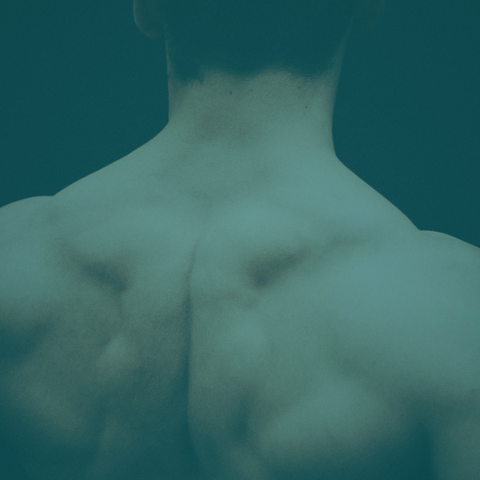
Sleep isn’t a realm of oblivion we visit every night. It is essential for the physical and mental restoration of the body. In the modern world, things like stress, screen time, and lifestyle choices constantly challenge our sleep cycles, meaning that many people just don’t get enough quality rest [1]. Perhaps as a result of this, natural sleep aids are growing significantly in popularity [2,3]. You can read more on the importance of sleep here.
One compound of growing interest is apigenin, a natural flavonoid found in common fruits, vegetables, and herbs like parsley, chamomile, celery, and oranges [4].
This article will explore our current scientific understanding of apigenin’s effects on sleep, its mechanisms of action, and practical considerations for its use as a natural sleep aid. We've previously covered apigenin's effects on anxiety and its natural sources.
What is apigenin?
Apigenin (4′,5,7-trihydroxyflavone) is a naturally occurring flavonoid. These are plant compounds, of which apigenin belongs to a subclass of flavones. It is known for its antioxidant, anti-inflammatory, and neuroprotective properties [5-7], and is abundant in a range of dietary sources, most famously chamomile tea [8-10]. This preparation has been used for millennia as a traditional herbal remedy for insomnia and anxiety, due to its calming effects [11]. In recent times, research has begun to unravel the biological mechanisms underpinning the role of apigenin in sleep, suggesting that it might have sedative, anxiety-reducing, and sleep-promoting effects.
Key neurotransmitters involved in sleep
To understand how apigenin might affect sleep, it’s helpful to set the landscape of sleep regulation from a neurochemical perspective.
Our sleep-wake cycle is governed by a complex interplay of neurotransmitters and brain structures [12]. These include GABA (gamma-aminobutyric acid) [13], the brain’s primary inhibitory neurotransmitter that reduces neuronal excitability and promotes calmness and sleep [14]. Also involved are adenosine, melatonin (a hormone that regulates the sleep-wake cycle in response to light) [15], serotonin, and dopamine (mood and arousal-related neurotransmitters that define the architecture of sleep) [12,16]. You can read more on sleep hormones and their effects on the GABA system here.
Apigenin and GABA
One of the most well-established actions of apigenin is its affinity for the benzodiazepine binding site of the GABA-A receptor [17,18]. This is the same receptor complex targeted by common anti-anxiety and sleep medications like diazepam and lorazepam [19,20].
Through binding to the subunit of the GABA-A receptor, apigenin enhances the effect of GABA and ultimately quiets brain activity, producing calming, anti-anxiety, and sedative effects.
Unlike pharmaceutical benzodiazepines, apigenin does not appear to cause strong sedation, dependence, or withdrawal symptoms. In mice, apigenin was shown to have anxiety-reducing effects without impairing motor function (a common side effect of benzodiazepines) [21]. This makes it a promising candidate as a natural and non-addictive sleep support aid [18,22].
Human research on apigenin and sleep
Apigenin has been shown to reduce stress by bringing down levels of cortisol in human adrenal cells [23]. Cortisol is a well-known stress hormone that can, at high levels, have negative effects on the sleep-wake cycle.
Although most studies to date have been conducted in cell studies such as the above, or animal models, some preliminary data in humans is available, mainly from studies on chamomile extract (which contains apigenin as an active ingredient).
A randomized controlled trial in older people with insomnia found that chamomile extract (200 mg twice per day) improved their subjective sleep quality after 28 days of administration [24].
A meta-analysis (pooling of available research evidence) found that chamomile administration significantly improves sleep quality and generalized anxiety disorder, but not insomnia [10]. It also noted that only mild adverse events were reported in the small number of studies included in the analysis [10,25].
While these results can’t be attributed solely to apigenin, they suggest that apigenin-rich compounds may have tangible benefits for sleep in humans. More targeted and specific human studies using apigenin are still needed, in particular studies that consider the purity and potency of the products used [10].
Conclusion
Apigenin is an intriguing, naturally occurring compound with preliminary evidence supporting its roles in sleep and relaxation. Through its interaction with the GABA-A receptor, its anti-anxiety effects and impact on sleep quality offer promise as a non-addictive, non-pharmacological sleep aid.
While more research is needed to confidently establish its usefulness in human studies, the evidence so far indicates that it can be used as a natural sleep product given its low toxicity.
Whether enjoyed as a warm cup of chamomile tea before bed or as a supplement, apigenin holds promise as a way to wind down and promote better sleep in our increasingly chaotic and restless world.
If you're a practitioner and interested in using apigenin as a sleep aid for your patients, check out Tro+ Somna, Troscriptions' most potent sleep formula yet. It's designed to tackle even the most challenging sleep disturbances. If your patients really struggle to fall asleep or stay asleep, before reaching for the prescription (or calling in a refill), Tro+ Somna may be their answer!
References
[1] V.K. Chattu, Md.D. Manzar, S. Kumary, D. Burman, D.W. Spence, S.R. Pandi-Perumal, The Global Problem of Insufficient Sleep and Its Serious Public Health Implications, Healthcare 7 (2018) 1. https://doi.org/10.3390/healthcare7010001.
[2] C.M. Morin, L.-A. Vézina-Im, S.-J. Chen, H. Ivers, C.E. Carney, J.-P. Chaput, T.T. Dang-Vu, J.R. Davidson, G. Belleville, D. Lorrain, O. Horn, R. Robillard, Prevalence of insomnia and use of sleep aids among adults in Canada, Sleep Medicine 124 (2024) 338–345. https://doi.org/10.1016/j.sleep.2024.09.044.
[3] M.M. Sánchez-Ortuño, L. Bélanger, H. Ivers, M. LeBlanc, C.M. Morin, The use of natural products for sleep: A common practice?, Sleep Medicine 10 (2009) 982–987. https://doi.org/10.1016/j.sleep.2008.10.009.
[4] Z. Mushtaq, N.B. Sadeer, M. Hussain, Mahwish, S.A. Alsagaby, M. Imran, T. Mumtaz, M. Umar, A. Tauseef, W. Al Abdulmonem, T. Tufail, E. Al Jbawi, M.F. Mahomoodally, Therapeutical properties of apigenin: a review on the experimental evidence and basic mechanisms, International Journal of Food Properties 26 (2023) 1914–1939. https://doi.org/10.1080/10942912.2023.2236329.
[5] M. Kim, J. Jung, N.Y. Jeong, H.-J. Chung, The natural plant flavonoid apigenin is a strong antioxidant that effectively delays peripheral neurodegenerative processes, Anat Sci Int 94 (2019) 285–294. https://doi.org/10.1007/s12565-019-00486-2.
[6] B. Salehi, A. Venditti, M. Sharifi-Rad, D. Kręgiel, J. Sharifi-Rad, A. Durazzo, M. Lucarini, A. Santini, E.B. Souto, E. Novellino, H. Antolak, E. Azzini, W.N. Setzer, N. Martins, The Therapeutic Potential of Apigenin, IJMS 20 (2019) 1305. https://doi.org/10.3390/ijms20061305.
[7] T.A. Olasehinde, O.O. Olaokun, The Beneficial Role of Apigenin against Cognitive and Neurobehavioural Dysfunction: A Systematic Review of Preclinical Investigations, Biomedicines 12 (2024) 178. https://doi.org/10.3390/biomedicines12010178.
[8] G.L. Hostetler, R.A. Ralston, S.J. Schwartz, Flavones: Food Sources, Bioavailability, Metabolism, and Bioactivity, Advances in Nutrition 8 (2017) 423–435. https://doi.org/10.3945/an.116.012948.
[9] Gupta, Chamomile: A herbal medicine of the past with a bright future (Review), Mol Med Rep 3 (2010). https://doi.org/10.3892/mmr.2010.377.
[10] A. Kazemi, S. Shojaei-Zarghani, P. Eskandarzadeh, M.H. Hashempur, Effects of chamomile (Matricaria chamomilla L.) on sleep: A systematic review and meta-analysis of clinical trials, Complementary Therapies in Medicine 84 (2024) 103071. https://doi.org/10.1016/j.ctim.2024.103071.
[11] D.J. Kramer, A.A. Johnson, Apigenin: a natural molecule at the intersection of sleep and aging, Front. Nutr. 11 (2024) 1359176. https://doi.org/10.3389/fnut.2024.1359176.
[12] C.J. Watson, H.A. Baghdoyan, R. Lydic, Neuropharmacology of Sleep and Wakefulness, Sleep Medicine Clinics 5 (2010) 513–528. https://doi.org/10.1016/j.jsmc.2010.08.003.
[13] Y. Oishi, Y.C. Saito, T. Sakurai, GABAergic modulation of sleep-wake states, Pharmacology & Therapeutics 249 (2023) 108505. https://doi.org/10.1016/j.pharmthera.2023.108505.
[14] P. Varinthra, S.N.M.N. Anwar, S.-C. Shih, I.Y. Liu, The role of the GABAergic system on insomnia, Tzu Chi Medical Journal 36 (2024) 103–109. https://doi.org/10.4103/tcmj.tcmj_243_23.
[15] C. Ekmekcioglu, Melatonin receptors in humans: biological role and clinical relevance, Biomed Pharmacother 60 (2006) 97–108. https://doi.org/10.1016/j.biopha.2006.01.002.
[16] F. Lechin, B. Pardey-Maldonado, B. Van Der Dijs, M. Benaim, S. Baez, B. Orozco, A.E. Lechin, Circulating neurotransmitters during the different wake–sleep stages in normal subjects, Psychoneuroendocrinology 29 (2004) 669–685. https://doi.org/10.1016/S0306-4530(03)00095-7.
[17] M. Marder, Flavonoids as GABAA receptor ligands: the whole story?, JEP (2012) 9. https://doi.org/10.2147/JEP.S23105.
[18] Z. Hu, S. Oh, T.-W. Ha, J.-T. Hong, K.-W. Oh, Sleep-Aids Derived from Natural Products, Biomolecules & Therapeutics 26 (2018) 343–349. https://doi.org/10.4062/biomolther.2018.099.
[19] L.C. González Gómez, N.B. Medina, S. Sanz Blasco, M.C. Gravielle, Diazepam-Induced Down-Regulation of the GABAA receptor α1 Subunit, as mediated by the activation of L-Type Voltage-Gated calcium Channel/Ca2+/Protein kinase a signaling cascade, Neuroscience Letters 810 (2023) 137358. https://doi.org/10.1016/j.neulet.2023.137358.
[20] C.E. Griffin, A.M. Kaye, F.R. Bueno, A.D. Kaye, Benzodiazepine pharmacology and central nervous system-mediated effects, Ochsner J 13 (2013) 214–223.
[21] R. Avallone, P. Zanoli, G. Puia, M. Kleinschnitz, P. Schreier, M. Baraldi, Pharmacological profile of apigenin, a flavonoid isolated from Matricaria chamomilla, Biochemical Pharmacology 59 (2000) 1387–1394. https://doi.org/10.1016/S0006-2952(00)00264-1.
[22] Y. Shi, J.-W. Dong, J.-H. Zhao, L.-N. Tang, J.-J. Zhang, Herbal Insomnia Medications that Target GABAergic Systems: A Review of the Psychopharmacological Evidence, CN 12 (2014) 289–302. https://doi.org/10.2174/1570159X11666131227001243.
[23] S. Ohno, S. Shinoda, S. Toyoshima, H. Nakazawa, T. Makino, S. Nakajin, Effects of flavonoid phytochemicals on cortisol production and on activities of steroidogenic enzymes in human adrenocortical H295R cells, The Journal of Steroid Biochemistry and Molecular Biology 80 (2002) 355–363. https://doi.org/10.1016/S0960-0760(02)00021-3.
[24] M. Adib-Hajbaghery, S.N. Mousavi, The effects of chamomile extract on sleep quality among elderly people: A clinical trial, Complementary Therapies in Medicine 35 (2017) 109–114. https://doi.org/10.1016/j.ctim.2017.09.010.
[25] S.M. Zick, B.D. Wright, A. Sen, J.T. Arnedt, Preliminary examination of the efficacy and safety of a standardized chamomile extract for chronic primary insomnia: A randomized placebo-controlled pilot study, BMC Complement Altern Med 11 (2011) 78. https://doi.org/10.1186/1472-6882-11-78.






Comments (0)
There are no comments for this article. Be the first one to leave a message!